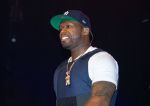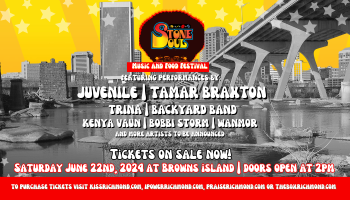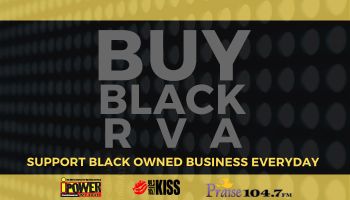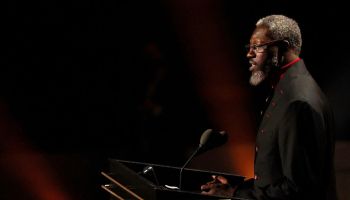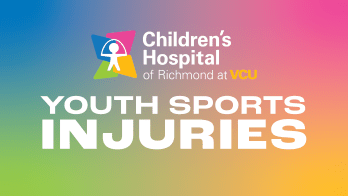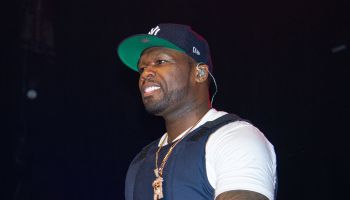With Proposition 8 having been overturned recently, black America is going through a change in perspective. From the spyglass of your average pop-culture junkie literati to the TV set of the humdrum family man to the subway rag of the fashion-forward mall rat, change is happening and people are reacting. Homosexuality and the LGBT community are still banging out the kinks in their argument to get the same rights of their peers. However, day by day, the tidal waves pull and inch back and heterosexual black people become more accepting of their differences with their LGBT peers. So, we decided to take a look at the black LGBT people that changed (and are changing) the world as we know it.
1.
James Carroll Booker III
James Carroll Booker III, yet another that left this world at a young age, was a vanguard New Orleans soul brother musician and rhythm and blues all-star that had massive jazz following.
2.
Bessie Smith
Gale Force wind songstress, often referred to as “The Empress of the Blues” was the most celebrated American blues singer of the 1920 and 1930sn and is often noted as being one of the greatest vocalists of her area and one of the most influential.
3.
Beverly Smith
This Cleveland Ohio feminist and health advocate is the instruction of Women’s Health at the University of Massachusetts, and was one of the three National Black Feminist Organization members who pioneered one of the widely read talk pieces on black feminism, the “Combahee River Collective Statement” in 1977. One of the most enlightening minds of the century, she has also written on identity politics.
4.
Rebecca Walker
Described by Time Magazine as one of the 50 future giants of America, feminist writer and the bisexual daughter of Alice Walker, Rebecca Walker has written for every lifestyle rag under the sun. One of her books, One Big Happy Family, argued gender identity and sexual orientation, questioning rather non-nuclear family foundations like polyamory, single motherhood, mixed race clash-culture kin and gay adoption parenthood was changing the face of suburban America. Co-founder of the Third Wave Foundation, which assists transgender youths and young women, also spoke out about her year of neglect by her cultural icon mom Alice, even challenging her mother’s famous philosophy: that motherhood is servitude.
5.
Meshell Ndegeocello
Incorporating funk, hip-hop, jazz, reggae, rhythm and blues, rock ‘n roll and soul in her repertoire, Meshell Ndegeocello has been cited as one of the most significant singer-songwriters of the 20th and 21st centuries. Her critical acclaim has garnered 10 Grammy nominations, and the multi-instrumentalist singing rap star is often noted for kindling the flame that could become the neo-soul movement. Her image as well as that of other neo-soul and R&B dance queen Janet Jackson, helped promote same-sex equality.
6.
Ethel Waters
Legendary American blues and jazz Broadway thespian contralto Ethel Waters was the second ever African-American ever nominated for the prestigious Academy Award for Best Supporting Actress the 1949 film Pinky. Beginning in the black vaudeville circuit and carnivals before recording her iconic standard “Stormy Weather” and the gospel spiritual “His Eye is on the Sparrow,” Waters was went on to become the highest paid performer of Broadway.
7.
Paul Winfield
Portraying historical luminaries like that of Martin Luther King, Jr. in the TV miniseries King, the Emmy-nominated Paul Edward Winfield wowed audiences in the landmark cinematic film Sounder. His Academy Award-nominated depiction of a besieged Louisiana sharecropper breaking his back to support his family in the Great Depression won rave reviews from critics and audiences alike.
8.
Bayard Rustin
U.S. civil rights activist and principal organizer of the March on Washington for Jobs and Freedom in 1963, Bayard Rustin was an expert in nonviolent resistance and was one of the first to advocate the constitutional civil liberties of gay and lesbians at a time where homosexuality was seen as a criminal act.
9.
Alan Greg Rogers
Debate over the end product of the effectiveness of the U.S. military’s “Don’t Ask, Don’t Tell” policy shined through following the death of Alan Greg Rogers, who was the first acknowledged gay combat fatality of Operation Iraqi Freedom. A army major and intelligence officer for the U.S. military, Rogers was an ordained pastor and the that worked around the clock to bridge the gap between LGBT culture and the military community.
10.
Marlon Riggs
The landmark Tongues Untied was not just an achievement in LGBT culture, but also an achievement in documentary storytelling. Spoken word poet and gay rights activist Marlon Riggs understood this and his litigious cinematic public television pieces often met with protest because they were funded by National Endowment for the Arts.
11.
Essex Hemphill
A cerebral pugilist of civil rights and equality, Essex Hemphill’s poetry was one of a kind, depicting graphic, visceral depictions of struggle and the grotty chaos of African Ameircan gay life. Appearing in The Advocate, Essence, Gay Community News, High Performance and RFD Magazine, he confronted the overlooked subject of racism in the gay community, the HIV/AIDS epidemic and debunked the nuclear family concept, challenging others to investigate other family structure.
12.
Tarell Alvin McCraney
A few years ago, Tarell Alvin McCraney graduated from the Yale School of Drama with a degree in playwriting, acquiring the prestigious Cole Porter Playwriting Award upon graduation. Since, he has become a pioneer of post-Prop 8 black and gay civil rights. The New York City playwright’s debut, The Brother’s Size, which premiered at The Public Theatre in New York in 2007, transplanted Yoruba mythology to the contemporary projects in Louisiana. The semi-autobiographical play Wig Out is a pensive gaze at the New York drag club circuit and explores the experience of the urban, gay black man. He even wrote a piece on Hurricane Katrina. Now with his epic Brother/Sister Trilogy, headlining the acclaimed Steppenwolf and Marcus: or the Secret of the Sweet, the third component of the trilogy being opined by the Young Vic Theatre in London, McCraney has established himself as a serious go-to artiste. How accomplished is he? Before 30, he joined the Royal Shakespeare Company as a consulting artist-in-residence.
13.
Wallace Thurman
One of the prominent unsung supermen of the Harlem Renaissance, Wallace Thurman’s magnum opus The Blacker the Berry: A Novel of Negro Life, explored colorism in the black community through the eyes of a dark-skinned woman from Boise, Idaho. The novel, which illustrates Emma Lou Morgan, a darker black woman who encounters bigotry and prejudice by lighter-skinned black people questioned beauty and value, issues that are still being questioned and analyzed today. Maybe, Thurman was born in the wrong time.
14.
Anthony Woods
Operation Iraqi Freedom vet Anthony Wood was discharged from the U.S. military for violating the army’s “Don’t ask, don’t tell” policy in 2008, launching his bold step forward in politics. Eventually he went on to run for the U.S. Congress in California’s 10th congressional district. The win would have allowed Woods the prestige of becoming the first openly gay African-America in Congress had he won the bid. He only received eight percent of a special election vote. Now, serving for nonprofit Mission Serve, Woods has become the poster child of the post-Prop 8 gay rights movement.
15.
Phill Wilson
After the lost of a lover to the very virus one has gone to war with, what does one do? HIV-positive, Phill Wilson founded the Black AIDS Institute in 1999 and never looked back, becoming the chief pioneer in the fight against AIDS in the black community.
16.
Patrik-Ian Polk
Noted for his highly sensual portrayals of the black and Latino LGBT experience, film director Patrik-Ian Polk kicked off his career with the independent Punks. Seen as the male parallel to Waiting to Exhale, the award-winning feature made its world premiere at the 2000 Sundance Film Festival. But it was his smash hit TV series Noah’s Arc which debuted on MTV’s Logo in October 2005 that turned this humble shutterbug into a fat cat firebrand.
17.
Richard Bruce Nugent
Washington, D.C. artiste Richard Bruce Nugent was a writer and painter whose stark and daring visuals, rather spoken or illustrated, spoke volumes. The Harlem Renaissance juggernaut’s literary brilliance shined with his short story “Smoke, Lilies, and Jade” is still regarded by many egghead intelligentsias as the first publication by an African-American to canvas homosexuality freely. One of the writers of art zine Fire!!, Nugent created amazing art along with other unsung heroes like his roommate Wallace Thurman, and close friends Zora Neale Hurston, Aaron Douglas and Langston Hughes.
18.
Tracy Chapman
Four-time Grammy Award-winning recording singer-songwriter Tracy Chapman pioneered the singer-songwriter movement in the early-to-mid 90s that included Tori Amos, Sarah McLachlan and (much later) Fiona Apple and Alanis Morisette. Her self-titled album and its first single “Fast Car,” allowed her to take home the award for Best Contemporary Folk Album at the 31st Grammy Awards and was ranked on Rolling Stone’s list of the 500 Greatest Albums of All Time.
19.
Sapphire
Slam performance poet Ramona Lofton was a wayward hippie just looking to create and manifest through her art before dousing herself in the literary flame of poetry. Defying her given name, she became Sapphire and began self-publishing which resulted in her first collection, Meditations on the Rainbow in 1987.Her second collection of poems American Dreams, drew praise from several critics, but it was her only novel to date, Push, that sparked a bidding war. Eventually offered $500, 000 to finish the novel, the novel was published by Vintage Publishing and went on to sell a payload cluster of hundreds upon thousands of books, recently turning up on the silver screen. Winning several awards including the coveted, Best Adapted Screenplay for Geoffrey S. Fletcher.
20.
Lee Daniels
Lee Daniels is a big part of black history. Okay, he’s practically a legend. Why? The acclaimed African-American film director and cinematic producer had a few bad turns being films Shadowboxer and The Woodsman to screen. But after producing Monster’s Ball, where he saw the first black woman win the Oscar for Best Actress, he became the only the African-American to be nominated for his Best Director for his work with Precious: Based on the Novel “Push” by Sapphire. He was also nominated for Best Picture, solidifying anticipation for his follow-up.
21.
Alice Walker
Legendary womanist poet Alice Walker is notorious for writing on race, gender and the politics of sex and sensuality. Her magnum opus, her critically-lauded novel The Color Purple, which encompassed these topics, won her the Pulitzer Prize for Fiction in 1983 and drew as much controversy as she did praise. Her road to fame from her humble beginnings as the eighth child of Georgia sharecroppers, Walker helped recover lost work of art from Zora Neale Hurston and has become an outspoken activist against female circumcision.
22.
George C. Wolfe
A theatre and film director, playwright George Costello Wolfe is not stranger to dramatics. Introducing his raw talent with the musical Paradise in 1985 and the play The Colored Museum in 1986, now seen as significant works of art in the African-American lexicon of the theatrical and literary worlds, Wolfe begin his rise as an award-winning director when he took home the Obie for the off-Broadway production of the Spunk, an adaptation of Zora Neale Hurston stories. Then came his Drama Desk Award win for Outstanding Book of a Musical for his 1991 musical Jelly’s Last Jam, a bio-musical of jazz icon Jelly Roll Morton. Then came his Tony win for directing Angels in America: Millennium and his creation of the tap musical tour de force Bring in ‘Da Noise, Bring in ‘Da Funk, winning his second Tony. Serving as the artistic director and producer for the New York Shakespeare Festival/Public Theater for over a decade, he directed several Broadway faves including Take Me Out (examining machismo and sexuality in the sport world), Caroline, or Change (examining servitude and class among the black and Jewish people in the Civil Rights era) and Topdog/Underdog (a study on kin, poverty, machismo and politics through the African-American experience). A rebel, he decided to step away from theatre to focus on film, the result: Lackawanna Blues, his cinematic directorial debut.
23.
Audre Lorde
Describing herself as a “black, lesbian, mother, warrior, poet,” Audre Lorde redefined the laws and manacles of feminism. Not by pointing the finger of the oppressive patriarchy, but by pointing at the race restraints of feminism that latched on to the values white middle-class women as reflected in Betty Friedan’s The Feminine Mystique. She became an enemy of the National Organization for Women for her critiques. Anti-war and anti-oppression, the civil rights valkyrie brought to the idea that there were various subdivisions of women, a theory that was not the norm in the pre-Civil Rights era. She also identified homophobia, racism and sexism as a nexus to change stating that they all came from the malfunction to distinguish tolerance and difference among our fellow men and women. In her words, “as long as society continues to function in binaries, with a mandatory greater and lesser, Normative and Other, women will never be free.” Spoken like true outlaw.
24.
Richmond Barthé
Celebrated sculptor is known for his strikingly exquisite works of art which includes a sculpture of a Cuban featherweight “Kid Chocolate” on display at the Art Institute of Chicago and a Toussaint L’Ouverture Monument in Port-au-Prince. A true artist, he played with shapes to articulate his internal conflicts in relation to racial identity, the politics of sex and sensuality, religion and eroticism.
The Top 10 Black Gay And Lesbian Figures Of All-Time
MLK’s Niece Calls Gay Marriage Genocide
New York Man Kills Boy Toddler “For Acting Like A Girl” [OPINION]
24 LGBT People We Admire was originally published on giantlife.com


